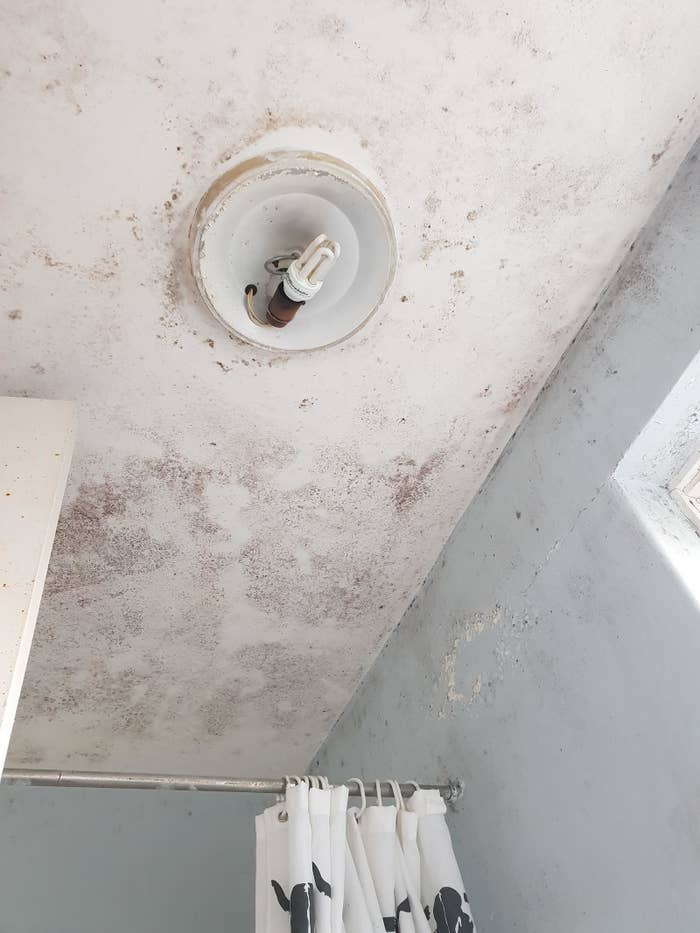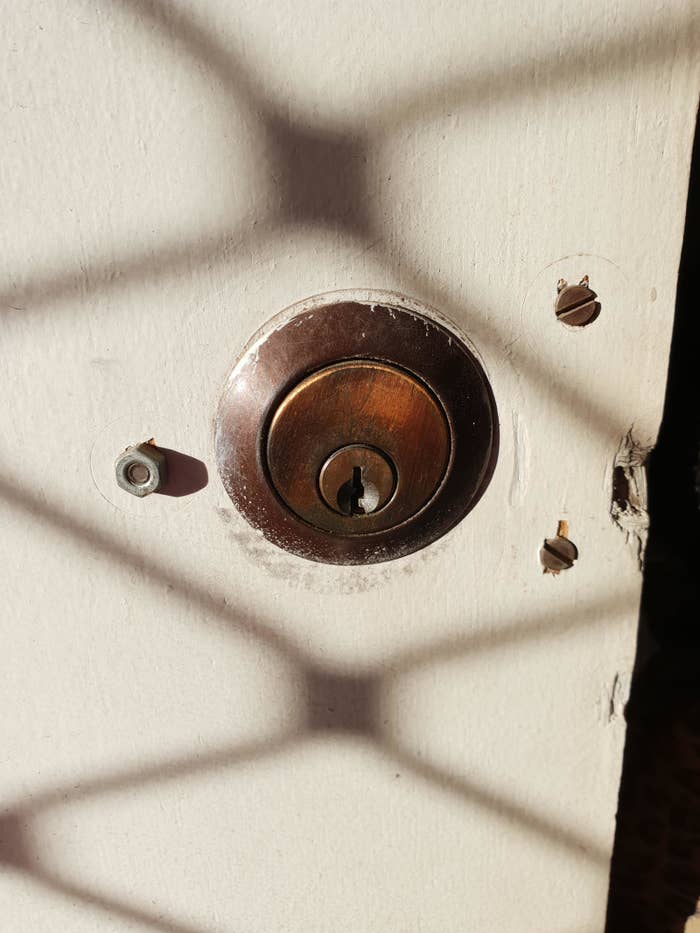
Megan, a 40-year-old legal assistant, has been living in her current rental property in Melbourne's Brunswick West for almost ten years.
In the near decade that she's spent in the flat, the oven has never worked because the bottom element is broken.
"When I first moved into the flat, I tried to bake some scones. They stuck on the pan and burnt on the top," she told BuzzFeed News. She makes do with a mini muffin maker and a Crock-Pot.
When Megan (whose surname has been withheld) moved in, the landlord had recently replaced the toilet's cistern. But they had "chucked the old cistern in the linen cupboard", she said.
Her bathroom has no extractor fan, and black mould is growing. "On the wall, there's a patch where the paintwork has bubbled up and I can just see all the layers of paintwork and all the mould underneath it," she said. "They've known about it for some time and they've done nothing."

As well, she says the locks on her front door aren't secure, the glue that sticks the kitchen's lino to the floor is disintegrating, and the fuse box can't support multiple appliances running simultaneously.
While Megan has told her real estate agent about these issues, she's reluctant to press it too much – even after ten years of not being able to bake scones in her home.
"My biggest fear is if I make too much of a noise they'll throw me out," she said. She hasn't got enough in savings to move if she were to be evicted.
"My plan is to make sure I've got enough money to put a bond on a new place if I decide to actually ramp up the ante and start fighting, go out swinging," she said.
Megan is not alone in living in a property that needs repairs. A report published today finds that over half of renters (51%) are living in a home that currently needs repairs. The bathroom is the most common trouble spot, with 78% of renters saying that they've had repairs issues there since renting their current property, and one third experiencing problems with mould in their bathroom. The report, "Disrupted: The consumer experience of renting in Australia", was written by CHOICE, National Shelter, and The National Association of Tenants Organisations, and is based on a survey of over 1,500 Australian renters.
The report suggests that the prevalence of repair issues is partly due to tenants' insecurity. Nearly half (44%) of renters are worried that if they request repairs, they could be evicted. Even more (68%) are worried it could result in an increase in their rent.
Many renters may not be able to absorb the cost of either of those things happening. According to the report, renters are twice as likely to be "finding it difficult" to get by on their present income as non-renter. As well, a significant majority (83%) are concerned about the stress of needing to move.
But while the research indicates that some experiences are widely shared among renters, it also suggests that some groups experience renting differently.

Korey Gunnis, a 42-year-old community sector worker, lives with his partner in a Blue Mountains rental house, west of Sydney. He's rented for most of his adult life, over 20 years. He has a number of physical disabilities, including cerebral palsy, rheumatoid arthritis, and osteoporosis.
Gunnis says that the most difficult thing about renting is the lack of long-term security. In those two decades, he estimates he's had to move a dozen times.
"It's hard for anybody, but I think it's harder for a person like myself who's on a low income because financially it's really difficult," he said. "And also physically, because of the problems with mobility and pain and being able to manage having to move."
When he last moved two years ago, because the owner was selling the property, he had to get a removalist and went into debt. "I had no disposable money to be able to just fork out to do that," he said. "And whenever I have to move that's just been a regular thing, I have to rely on being in debt for a while unfortunately."
Gunnis' disability also affects the kinds of places he can look for if he needs to move: he needs to live somewhere low-rise and accessible. As well, he says he's had to move previously because the environment hasn't been right, which is difficult to check in a short inspection.
"The house hasn't been well-insulated so it's not really suitable for living with pain when you've got freezing cold air coming in in winter time and you can't get warm."
The report has found that renters with disabilities have a tougher time in a number of ways. They're likelier to have been evicted with a "no grounds" eviction, with 16% of people with a disability saying they've received one, compared to 9% of other Australians. They also reported paying for removalists more often than other Australians, and are 2.5 times more likely to have issues with inspections than the general renting population.
The report suggests that renting should be treated more like a "consumer experience", with stronger legal protections for renters.
"Australians have stronger consumer protections when they buy something from their local supermarket than when they spend tens of thousands of dollars renting a home," said CHOICE's director of campaigns and communications, Erin Turner. "We’ve got families living with mould all over their homes and left waiting weeks for repairs - this simply isn’t good enough."
The report also shows that, like Gunnis and Megan, many renters have been in the market for a long time: 6 in 10 renters have been renting for ten or more years. But neither Gunnis nor Megan are renting by choice. When asked if they would buy a place if they could afford to, Gunnis and Megan both said the same thing: "Absolutely".
"If I had a choice to buy a place I wouldn't hesitate," said Gunnis.
"At least I could do up the property the way I like it," said Megan. "I want to have a separate toilet, do it up like the Iron Throne in Game of Thrones and have Throne Room on the door."
